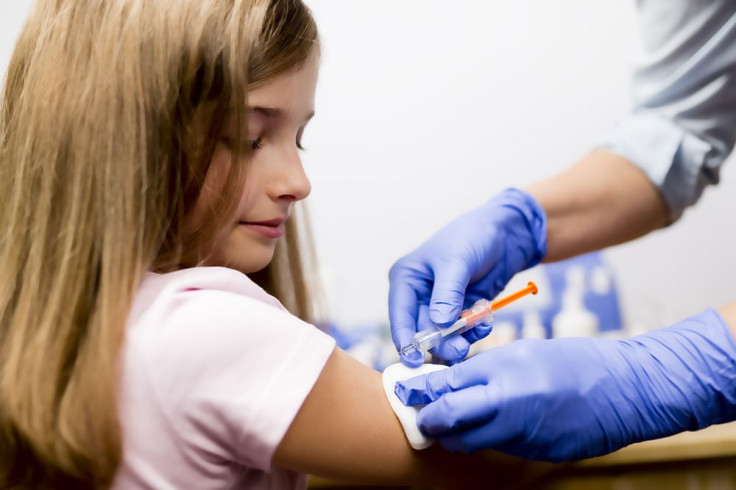HPV Vaccine Doesn't Cause STIs: How The Measles Outbreak Might Increase Acceptance Of HPV Vaccine

Few would deny the latest measles outbreak highlights the benefits of vaccines, though, apparently, all inoculations are not created equal — each separate shot, it seems, presents a unique challenge to widespread acceptance. The HPV inoculation, for instance, raises concerns among parents who worry that, by lowering the risk of acquiring some sexually transmitted infections (STIs), the vaccine might encourage unsafe sexual activity. A new study goes a long way to dispelling such fears with the researchers finding the HPV vaccine is not linked to an increase in STIs.
"It's fair to wonder what the implication of the measles vaccine controversy will have for take-up of the HPV vaccine, if any," Dr. Seth A. Seabury, associate professor of research at Keck School of Medicine of USC and co-author of the study, told Medical Daily in an email. "It does seem that physicians and public health officials are relying on science and the evidence that vaccines are safe and effective and don't cause autism to try and combat peoples' fears. We hope that our work can help contribute by providing a similar evidence base to combat fears about the HPV vaccine."
The latest measles outbreak is believed to have sprung from a Disney theme park in Anaheim, Calif., and, while spreading like wildfire through 16 other states, Washington, D.C., and Mexico, the disease has infected dozens of people. This respiratory disease is highly contagious as it is capable of being transmitted through the air on the wings of a simple cough or sneeze. About 30 percent of people who get measles will develop one or more complications, including ear infections, diarrhea, or pneumonia. Though the highest number of measles cases (more than 600) in recent years was reported in 2014, already there have been more cases of the measles reported during January 2015 than all of 2012.
While such news is sheer misery to public health officials, it may inspire some parents to look again at a frequently neglected inoculation, the HPV vaccine, which is recommended by the Centers for Disease Control and Prevention for girls and boys at ages 11 and 12. However, in 2013, only 57 percent of girls between 13 and 17 had received at least one dose of the regimen, while only 38 percent had received all three doses in the regimen. Why do parents shun this vaccine? After all, both the drug manufacturers and the CDC say it can prevent cervical, vulvar and vaginal cancers, and genital warts caused by certain human papillomavirus strains.
Yet, despite these high-level recommendations, many parents worry the vaccination may cause serious side effects, while others fear it could promote sexual behavior, both safe and unsafe, in the still-young children receiving the shots.
To study whether HPV vaccination is indeed linked to an increase in STI rates among girls, the researchers turned to a large insurance database. They examined the records of girls between ages 12 and 18 during the time span of January 2005 through December 2010. Searching through the records, they looked for medical claims for chlamydia, gonorrhea, herpes, human immunodeficiency virus or AIDS, or syphilis.
In the year before vaccination, the researchers discovered rates of STIs to be higher among HPV-vaccinated females (4.3 for every 1,000) compared with age-matched non-vaccinated females (2.8 for every 1000). In the year after vaccination, rates of STIs rose for both groups: 6.8 for every 1,000 vaccinated girls and 4.2 for every 1,000 non-vaccinated girls. Both rates, though, were on trend and the study authors conclude that since the HPV vaccination was not linked to increases in STIs in a large cohort of girls, this would suggest that vaccination is unlikely to promote unsafe sexual activity.
"While we understand parents have legitimate concerns about their children's' well-beings, the evidence suggests that HPV vaccination does not increase risky sexual behavior and we would encourage parents to follow recommendations and get their children vaccinated," Seabury told Medical Daily.
Source: Jena AB, Goldman DP, Seabury SA. Incidence of Sexually Transmitted Infections After Human Papillomavirus Vaccination Among Adolescent Females. JAMA Internal Medicine. 2015.
Published by Medicaldaily.com



























